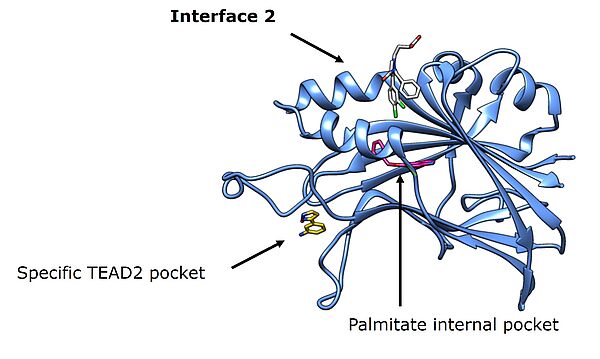TEAD modulators
TEAD proteins (TEAD1 to 4) are transcription factors that serve as key effectors in various cellular signaling pathways, including the Hippo pathway. By regulating specific target genes, TEAD proteins play a critical role in controlling organ growth and cell differentiation, primarily by modulating cell proliferation and apoptosis. To function, TEAD proteins require co-activators like Vgll1 to 3 and YAP/TAZ, which are themselves regulated by the Hippo pathway.
For the past decade, our laboratory has focused on inhibiting the interaction between YAP and TEAD, particularly as a strategy for reducing tumor growth in cancer. However, recent research has highlighted the role of TEAD modulation in neurodegenerative diseases such as Alzheimer's and Huntington's. In this context, both inhibiting and activating the interaction between TEAD and its co-activators hold promising therapeutic potential.
To design new modulators with tailored properties, we employ two key strategies:
- Developing a comprehensive toolkit of biophysical, biochemical, and biological assays to gain insights into the molecular mechanisms of TEAD complexes, focusing on the full-length protein, as previous studies have predominantly used truncated versions.
- Synthesizing new modulators derived from compounds discovered in our laboratory, which demonstrate an innovative binding mode.


